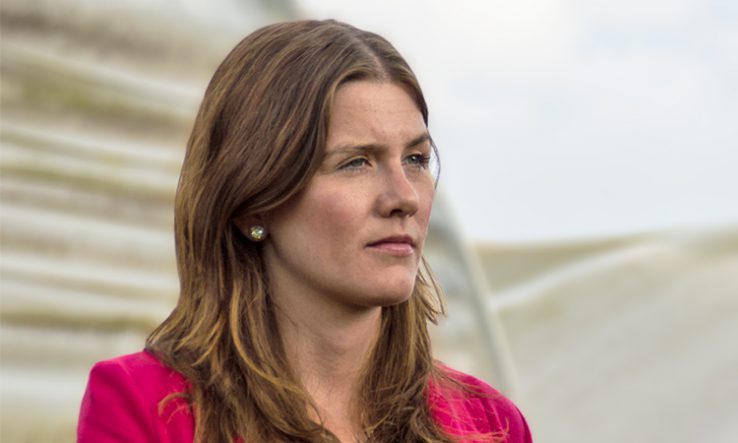
Image: Gareth Milner [CC BY 2.0], via Flickr
Call for expert advisory panel to be disbanded goes against academic freedom, open letter states
Over 1,300 academics have signed an open letter against Michelle Donelan’s call for a UK Research and Innovation advisory panel to be shut down over social media posts of some of its members on the Israel-Hamas war.
Professors and lecturers from across the country have said a letter from the secretary of science to the chief executive of the UKRI, Ottoline Leyser, constituted an “attack on individual freedom of expression and academic freedom”.
They said they were “deeply concerned about the current wave of repression and attempts at censorship led by the government against the lawful expressions of solidarity with Palestinians and criticisms of the Israeli military’s heavy bombardment of the Gaza Strip since 8 October”.
Rejecting disbandment
In the letter, the academics called for the research and innovation funding agency to reject Donelan’s call to disband the advisory board and take a stand “against the UK government’s attack on academic freedom and equality, and to all forms of intimidation aimed at punishing individuals for showing solidarity with Palestinians”.
One of the signatories, Jonathan Portes, professor of economics and public policy at King’s College London, reiterated this on X, formerly Twitter, writing: “It’s entirely legitimate political discourse—here & indeed in Israel—to describe Israel’s treatment of Palestinians as ‘apartheid’. This is a direct attack by [Donelan] not just on free speech and academic freedom, but on [UKRI’s] basic principles/remit.”
Yesterday a brief statement by Leyser, posted on UKRI’s official X account, read: “We are deeply concerned to have discovered these comments. We are conducting an immediate investigation.” UKRI was unable to comment further.
Portes told Research Professional News he was “shocked” by Leyser’s reaction.
“Donelan’s hypocrisy on the topic of academic freedom is no surprise,” Portes said. “But the reaction of the UKRI chief executive was genuinely shocking. She appears to have endorsed rather than rejected Donelan’s attempt to introduce political litmus tests into UKRI’s functioning. I think most UK academics across the political spectrum will find this genuinely disturbing.”
The secretary of state had written to Leyser expressing “disgust and outrage” at the appointment of Kate Sang of Heriot Watt University and Kamna Patel of University College London to the UKRI’s newly formed equality, diversity and inclusion advisory group. Both had been “sharing extremist views on social media”, she said. The academics have now locked their X accounts. They have been approached by RPN for comment.
Apartheid post
Donelan objected to one of the social media posts that likened Israel’s treatment of the Palestinian people to apartheid.
But the letter from the academics pointed out that many human rights organisations had also suggested Israel was practising apartheid against the Palestinian people. “Even if this were not the case, the academic would still have the right to express that opinion”, they added.
The academics’ letter also stated: “We are disturbed that the secretary of state is also pressuring UKRI to shut down the newly formed expert advisory panel… We consider equality, inclusion and diversity to be essential criteria for research quality assurance and professional equity.”
Undermining equality
It added: “Downplaying the work of UKRI’s expert advisory group as ‘an added burden and bureaucracy’ undermines the principles which universities across the sector champion, and fundamentally threatens the function of the Equality Act 2010.”
Donelan, in her original letter, said she was concerned that “in recent years UKRI has been going beyond the requirements of equality law in ways which add burden and bureaucracy to funding requirements”.
But the academics said that the secretary of state’s letter was an “unacceptable political interference in the decision-making and governance of UKRI, which cannot be allowed to pass”.
It had produced “a chilling effect across the whole academic community at the cost of intellectual and professional integrity”, they suggested.
Research Professional News has approached UKRI for comment.